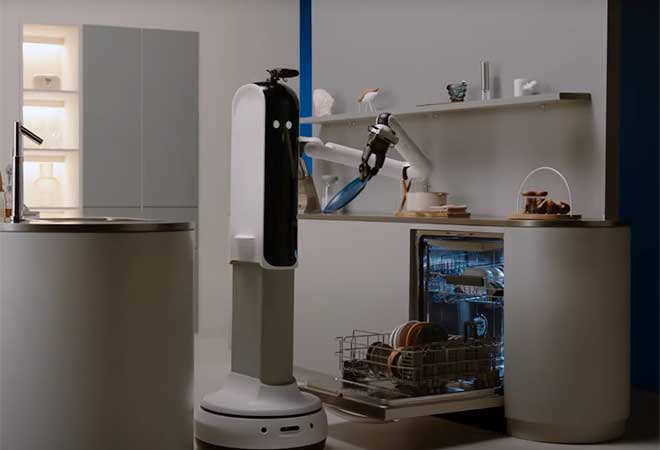Cleaning the dishwasher, doing the laundry, cleaning the baby's room: robots can make everyday life much easier. Companies that make household robots have big plans - and not just them. Service robots that take care of unpleasant and tedious household chores are a tempting idea for most people. Unlike their counterparts used in industry or for commercial purposes, household robots for the consumer market have the following requirements:
- Deficient acquisition and maintenance costs
- Easiest to use, requires no training
- Reliable way to work in unfamiliar environments
Dyson to build a robotics center at the airfield
At the International Conference on Robotics and Automation (ICRA) in Philadelphia, the British company Dyson, which until now has been known mainly for its vacuum cleaners, has now announced that it will expand its business to include robots for the home. The company plans to hire 250 robot engineers in computer vision, machine learning, sensors, and mechatronics this year alone. It plans to hire another 700 robotics specialists in the next five years.
The company's master plan is to build the largest and most advanced robotics center in the U.K. at Hallavington Airfield and bring the technology into private homes by the end of the decade.
The market for household robots is growing rapidly
While household robots may now be a slightly more apparent move for Dyson than electric cars, competition is just as fierce in this still-new market. Until now, the household robot market has consisted chiefly of vacuum cleaners or window-washing robots. But now, other tasks have been added, such as loading the dishwasher, cleaning the kids' room, and doing the laundry.
The market for digital home helpers is proliferating. The International Federation of Robotics estimates sales potential this year at $8.2 billion. The $10 billion mark is expected to be crossed as early as next year. By comparison, two years ago, revenues from household robots were still five billion dollars.
iRobot is also working on making household robots with arms
So it's no surprise that Dyson isn't the only company that wants its piece of the pie. iRobot, specializing in robot vacuum cleaners, is also working on mechanical home helpers with hands. But the industry is still puzzling over the task of the first household robot with hands. Do laundry? Wash the dishes? Or clean up a room before vacuuming?
Meanwhile, South Korean electronics giant Samsung has long patented the trademark "Samsung Bot." There are already the first announcements and videos about a robot called "Samsung Bot Handy" that cleans the dishwasher, picks up lying laundry, and sets the table. The video shows that the robot can recognize images. Samsung should undoubtedly capitalize on the AI expertise it has accumulated in developing smartphones.
"Everyday robots" work at Google
But, of course, big tech companies have long recognized the trend of everyday robotics: Google's sister company X is active in this area. The "everyday robots" are already used at the Google campus: they open doors, clean windows, clean cafeteria tables, and empty the trash garbage can.
The race for market leadership for the first household robot that can do more than just vacuum is still fully open. How quickly and efficiently the market for household robots will evolve will likely depend not least on how much consumers are willing to pay for such an innovation.
Increasing worldwide investment in household robot development for various applications is one of the crucial factors driving the market.

